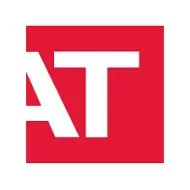Ambassadors of the World Trade Organization (WTO) have agreed on the need for wider access to COVID-19 vaccines and treatments, according to WTO spokesman Keith Rockwell. One of the strategies being considered is to issue a temporary waiver of intellectual property (IP) protections, which the WTO panel on intellectual property will discuss at a “tentative” meeting in late May and a formal meeting scheduled for June 8-9. On Wednesday, May 5, 2021, the United States Trade Representative, Katherine Tai, announced that the Biden administration supports efforts to waive intellectual property protections for COVID-19 vaccines. While it's unclear whether the WTO will implement this measure and in what form, it's nearly certain that waiving IP rights will not result in any significant increase in the near-term supply of COVID-19 vaccines. At the same time, there is serious concern for future innovation from developers of novel therapeutics and investment decisions that support these efforts.
The Trade-Related Aspects of Intellectual Property Rights (TRIPS) Agreement provides certain minimum standards of IP protection on WTO member countries, but it also provides the WTO certain safeguard provisions that allow waiver of certain IP rights designed to enhance access for developing countries to public health needs during extreme circumstances including public health crises. Included in those safeguards is the right to grant compulsory licenses for patented inventions without the consent of the patent holder, and the right of countries to avoid compliance with the normal import and export limitations for patent-protected pharmaceuticals. Section 7 of the agreement demands particular attention because it provides for a waiver of “undisclosed information” including proprietary information submitted to regulatory agencies in order to obtain marketing approval, such as chemistry, manufacturing and controls (CMC) information in the U.S. and Europe. Members are required to protect such data against unfair commercial use except where deemed necessary to protect the public.
The idea of waiving IP rights related to COVID-19 was originally proposed to the WTO in October 2020 by India and South Africa. The request includes a waiver of protections provided by patents, copyrights, industrial designs and undisclosed information, including trade secrets and test data, for vaccines, drugs, diagnostics and other technologies. However, the proposal failed to meet the consensus requirement for approval with opposition coming from the European Union, the United Kingdom and other developed countries, and until now, the United States. While the United States has indicated support for a waiver, a WTO approval is not certain, since strong opposition remains from other developed countries, including the European Union. Also, according to WTO Director-General Ngozi Okonjo-Iweala, a proposed revised agreement has yet to be prepared and negotiated.
With the main goal of providing improved access to quality COVID-19 vaccines and medical care to developing countries during the pandemic, it's questionable whether waiving IP rights would prove successful. Delays in providing a significant increase in global supply of vaccines can be expected from negotiations for the WTO to reach the required consensus, from complications for developing manufacturing facilities and technology transfer, and gaining approvals to market complex viral and RNA-based vaccines. Arguably, by the time the effect of any waiver of IP rights would be realized, the supply of vaccines from currently and newly approved manufacturers could well meet or exceed global demand. Market forces already have many companies capable of producing COVID-19 vaccines at or near capacity, and government action and market participants are teaming up to maximize manufacturing efficiency. For example, in India, the world's largest vaccine manufacturer, the Serum Institute of India that manufactures AstraZeneca's COVID-19 vaccine, and Bharat Biotech have had difficulty meeting demand due to capacity issues and indicated that because “vaccine manufacturing is a specialized process, it is therefore not possible to ramp up production overnight.” Whereas Merck recently announced that the Biomedical Advanced Research and Development Authority (BARDA) within the U.S. Department of Health and Human Services (HHS) will provide Merck with nearly $270 million to enhance manufacturing of COVID-19 vaccines and medicines, while Merck also reached an agreement with Janssen Pharmaceuticals, Inc. to support manufacturing and supply of Johnson & Johnson's COVID-19 vaccine. Similarly, the BioNTech Pfizer partnership has recently announced that in 2021 it plans to nearly double the originally announced production of its COVID-19 vaccine.
Multiple COVID-19 vaccines have been developed using novel nucleic-acid-based therapeutic platforms. A key question for the developers of these platforms is how proprietary information they have submitted to regulatory agencies will be treated under a TRIPS waiver. Part II, Section 7 of the TRIPS agreement protects information provided to regulators on the quality and consistency of drug products, including CMC information, from disclosure and unfair commercial use. Because CMC information may be critical to the production of nucleic acids used in COVID-19 vaccines, a future waiver would be expected to limit protections on disclosure and commercial use. At the same time, this CMC information may apply to nucleic acid components of other medicines built on the same platforms as the COVID-19 vaccines, and the waiver of TRIPS protections on unfair commercial use may allow competitors to copy or reverse engineer these other medicines even after the pandemic is over. It will be interesting to see how the Biden administration seeks to balance the desire for rapid distribution of CMC information to facilitate an increase in vaccine production against the desire to protect platform technologies that have been developed through significant investments over many years.
The effects of losing control of intellectual property rights can also prove devastating on the value of affected companies, many of which significantly factor into their national economies or are critical for the development of novel therapeutics. The development of novel therapeutics may also be severely thwarted, especially in relation to a newly emerging health crisis. With the realization of a waiver of IP rights for technologies that are developed to combat the current COVID-19 pandemic, companies that are in the business of novel therapeutic discovery and development will have to weigh that risk into future decisions to combat newly emerging health crises. Investors will also be considering a similar risk/benefit analysis when considering their investments, especially in early-stage drug development companies that have been responsible for many novel therapeutics and related products.
Originally Published by ACC Greater Philadelphia
The content of this article is intended to provide a general guide to the subject matter. Specialist advice should be sought about your specific circumstances.




